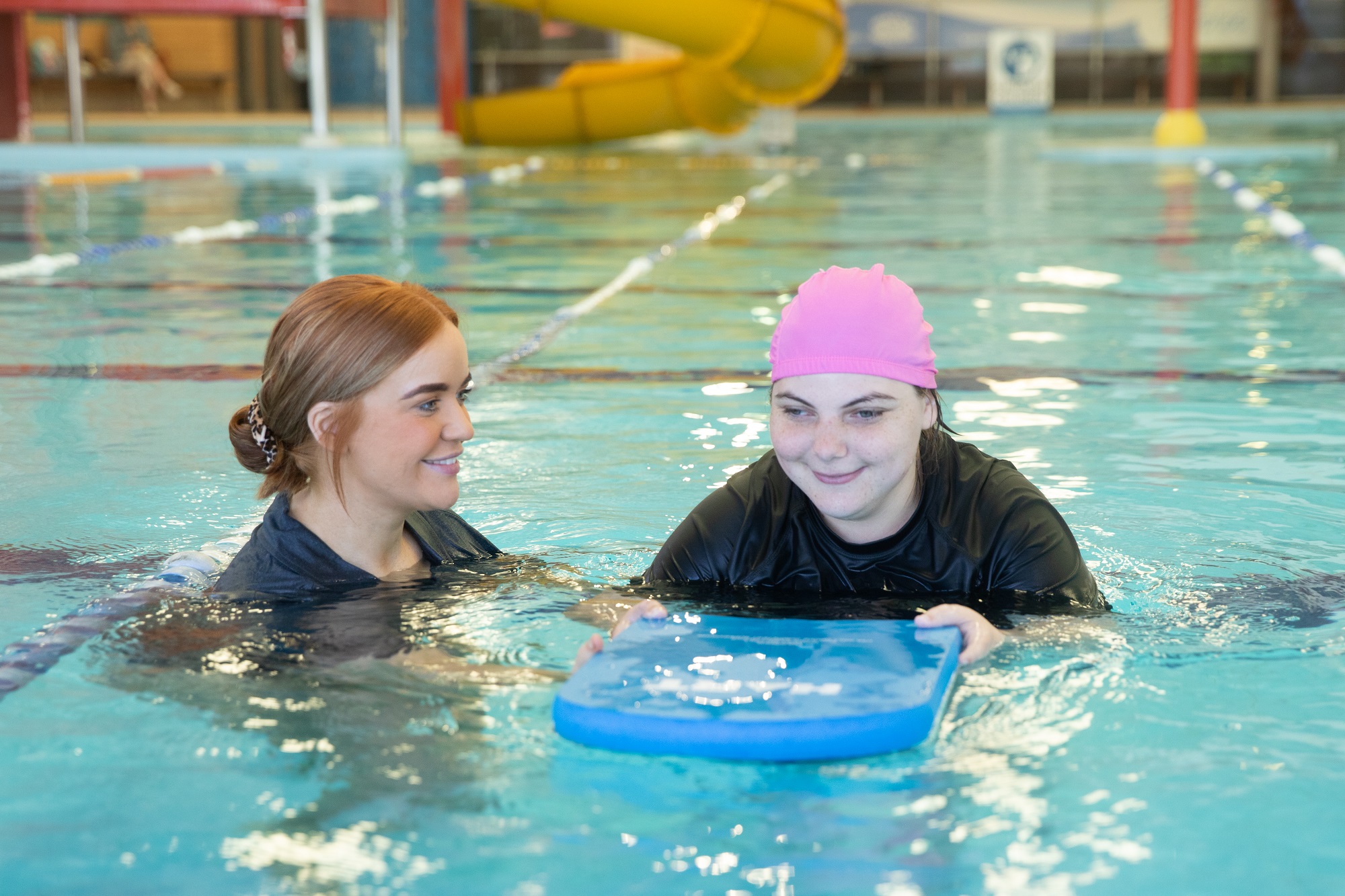
At Therapy Care, recreational therapy has become a core part of many participants’ success stories. It has supported the psychological and physical health, recovery and wellbeing of so many people in our community.
In many cases, the fear of failure has hindered people living with disabilities from reaching out to participate in social recreational activities. That is why at Therapy Care, we provide a safe space for all participants to begin their recreational therapy journey, no matter where they are socially and physically. While having fun is a major benefit of recreational therapy, it isn’t the only one.
Therapy Care’s recreational therapist, Karlie Scurr, speaks on the importance of participants developing their social skills in a post COVID-19 world, and how it can support them toward achieving their NDIS goals.
“Through providing a structured social context, participants have the ongoing ability to engage in new leisure and recreational pursuits, develop and sustain friendships, and for some, support re-entry into the community after years of social isolation. Our qualified staff are there to support ongoing engagement across all settings.
“We work collaboratively with our speech therapist, Kira, on implementing a variety of evidence-based social skills into each session,” says Karlie.
Recreational therapy focuses on a strengths-based approach across all services. This helps the participant reframe themselves in a favourable way, in order to see their value and worth. The strengths-based approach allows us to move that value forward to capitalise on their strengths, focusing on their abilities and increasing their goal-orientated outcomes.
Recreational therapists can work towards a number of goals with participants including:
✔ Community re-entry (individual & group-based)
✔ Functional skill-building (shoelace tying, numeracy and literacy goals, problem solving skills, memory skills, and fine and gross motor skills)
✔ Engagement and shared attention, including difficulties engaging within therapy sessions, at home or within the community (including difficulties engaging in intentional play with peers/siblings)
✔ Play and sensory-based therapies to meet cognitive and functional goals
Karlie has worked with participants from all walks of life and has witnessed the diverse benefits of recreational therapy on a wide range of disabilities. Our team of dedicated recreational therapists ask, “what do you want to do?”, instead of, “what do you think you can do?”, and work with individuals to overcome barriers that once seemed impossible.
“The great thing about working under the NDIS is that no two disabilities present the same, and there are new conditions recognised by the scheme each day. Participants receiving recreational therapy support have seen improvements in time management, pain management, cognitive function, expression of excess energy and adjustment to life with a disability. We also get to work with our complex mental health sector. People receiving support in this sector are living with a psychosocial disability, which includes conditions such as bipolar, PTSD, severe depression, and schizophrenia.”
One great way to incorporate recreational therapy into your NDIS plan is through our group day programs. They are designed to build on social, cognitive and physical skills. Some of the exciting activities our group participants partake in include art, inclusive kayaking, music, dance, exercise and athletics (with our paralympic coach who is also our day program manager!). Therapy Care’s activities that involve being around nature, animals, water and horticulture really make these programs unique and allow participants to experience the full benefits of recreation and leisure time.
Therapy care understands that barriers and discrimination still exist for our participants, so it is particularly important to continue to educate others and to create a more inclusive society.
“For anyone who has been isolated previously, or is nervous about re-entering into the community – reach out to your support workers, or a member of our welcoming team. We can provide an intake form for you to fill out, so you can get the support you need. We create a safe space, and develop goals (both big and small) together that are individualised to you. We make meeting goals fun and move at your pace. It is never too late to set new goals for yourself, to re-enter the community and to develop and sustain new friendships,” Karlie says.
To find out more about recreational therapy, please get in touch with us today: info@therapycare.com.au.
